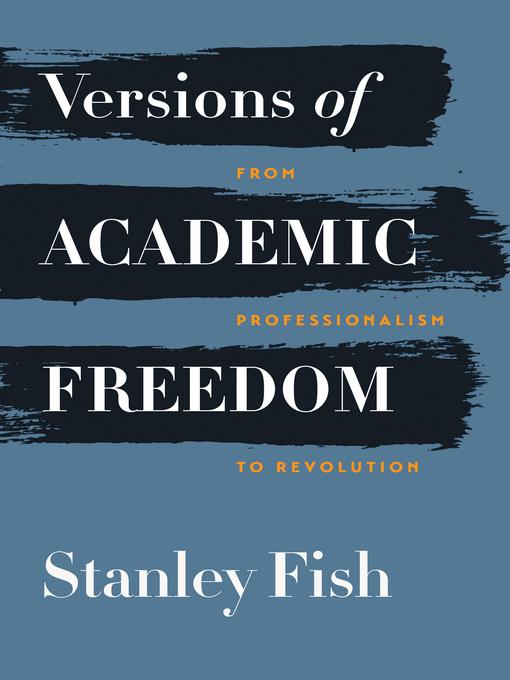
Versions of Academic Freedom
From Professionalism to Revolution
کتاب های مرتبط
- اطلاعات
- نقد و بررسی
- دیدگاه کاربران
نقد و بررسی

August 11, 2014
In his new treatise, Fish, a columnist for the New York Times and prominent public intellectual, tackles the question of academic freedom with his trademark incisiveness. Aiming to address two central questions—how broadly should we interpret academic freedom? and what is truly at stake when we limit the latitude of critical inquiry?—Fish first explores the role of academic in society through the lens of five basic schools of thought, which are placed them on a stratum from the most restrictive to the most permissive. Arguing for the most restrictive form, in which academic freedom should not be radical, but rather, radically limited, Fish defines academic freedom simply as the “unimpeded application of professional norms of inquiry.” According to Fish, diminishing the notion of academic freedom to a purely professionalist value “is required if academic freedom is to mean something as opposed to meaning everything.” In later chapters, Fish investigates the more permissive forms, surveying arguments that he unfailingly finds wanting from thinkers such as Judith Butler and Henry Giroux. Though Fish’s defense of the professionalist school of thought and critiques of the more liberal conceptions of academic freedom are both impeccably expressed, one cannot help shaking the feeling that his arguments are largely academic—made more in the spirit of how the academy should function than in reaction to what today’s profit-oriented universities actually do.

October 1, 2014
A well-known figure in several areas of scholarship, Fish's (Davidson-Kahn Distinguished Univ. Professor of Humanities and Law, Florida International Univ.; Save the World on Your Own Time) latest book serves as an introduction to a new field he calls "Academic Freedom Studies." Fish spends the majority of the volume defining the bounds of academic freedom and developing five schools of thought within the discipline. The concepts he posits run the gamut from the narrow "It's just a job" to the revolutionary "Virtue before Professionalism." Included in each chapter is a summary of the foundation writings for each school; where each approach fits into academic freedom studies; legal cases that support each school; and examples of the school's stances on various issues. Throughout, Fish is very forthcoming with his own opinions and biases in favor of or questioning particular ideas. A final gem of information is the appendix, the transcript of a talk given by Fish at Rice University in 2012 entitled "Academic Freedom, the First Amendment, and Holocaust Denial." VERDICT Essential reading for anyone researching in or developing policy on academic freedom, how it is changing, and how it intersects with the First Amendment.--John Sandstrom, New Mexico State Univ. Lib., Las Cruces
Copyright 2014 Library Journal, LLC Used with permission.

























دیدگاه کاربران